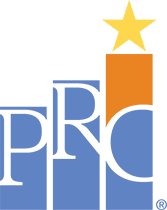Professionals commonly use networking to find new positions and advance their careers. However, the relationships established in professional networks also serve great purpose in helping individuals be successful in the jobs they currently have. In the healthcare industry, networking opportunities are rare for leaders, especially outside their own organization, and they are often left to pave their own road to success.
As healthcare leaders strive to drive outcomes with patient experience and employee and provider engagement, they are continuously challenged to find answers to both simple and complex problems. Finding solutions, or even choosing a solution when several are identified, can be a daunting and lonely process, especially as many leaders serve unique needs of the organization – there is only one NICU Director in the hospital, one Environmental Services leader, one ER Medical Director, etc. And while best practices can be found on many topics, what happens when the challenge faced is new, unique, or at a level of detail not addressed in the best practice summary?
In these times, a professional network can be a leader’s most valuable tool; a rich source of ideas and a sounding board for evaluating and considering those ideas. Curating a professional network can feel daunting but is easily obtainable with a little planning. Using your professional network for problem solving requires some skill, and leaders who abuse this resource will net little help and may find their network to shrink over time. Consider these tips to maximize successful networking:
• Connect individually. While it is tempting to send an email blast or a Tweet, networking is a relationship-based activity. People are much more willing to invest thoughts and time if you reach out to them individually.
• Be intentional. Find professionals in your network whom have a specific expertise or experience with the challenge at hand. Telling them why you thought of them and why you value their opinions will motivate them to respond to your ask.
• Have a conversation. If possible, ask the professional for a phone call or to meet in person. A dialogue will allow you to ask follow-up questions, will net more detailed feedback, and will strengthen your relationship for future networking.
• Do your research. Your network is happy to help, but they will not do the work for you, nor should you expect them to. Before you ask for help, collect important details about your issue, research best practices, and identify resources available and barriers to consider. If you have a strategy in mind, think through the implementation steps and identify gaps needing additional detail before approaching your network.
• Ask specific questions. Rather than asking, “What have you done to increase your Call Button scores?” ask questions that indicate that you have done your research. Choose questions that home in on how specific tactics were implemented and on the details of tools and processes used.
Whether you are looking to advance your career or just be excellent in the job you already have, professional networking is a skill that pays off in invaluable ways. At PRC’s Regional Summit in Indianapolis, Indiana on May 3, 2019, healthcare leaders will have networking opportunities with others who are driving change in their organizations. Click here to learn more and register for this exciting day of learning and professional networking.

